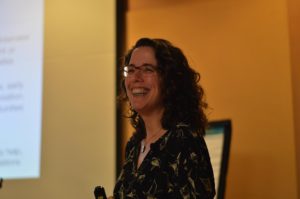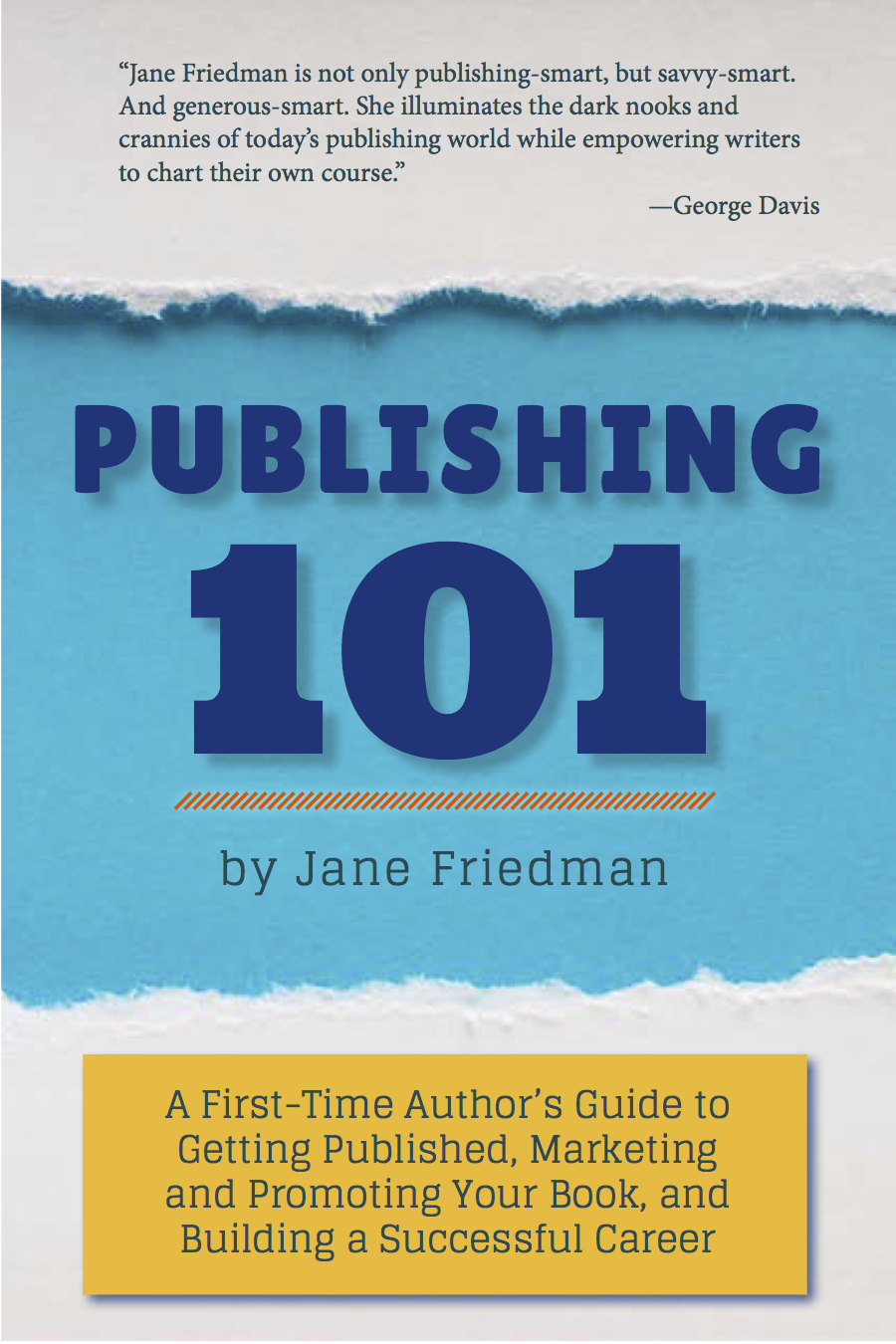You’ve finished your book. It’s been a month, a year, a decade, but you’ve polished that baby, and now it sits gleaming on your desk begging to be shared with the world. What do you, author, do now?
Send it to an agent? An editor? Self-publish? Serialize it? Make an audiobook? And how does one do any of those things?

Jane Friedman’s Keynote at the 2016 Willamette Writers. Photo Credit: Gail Pasternack
Enter Jane Friedman. She was the Opening Keynote Speaker for the Willamette Writers Conference 2016. Friedman is the author of Publishing 101, and her forthcoming book is called The Business of Being a Writer (2017). She has worked for Writer’s Digest and now teaches classes like “Digital Media & Publishing” at the University of Virginia. She also shares her knowledge about what’s going on in the publishing industry with authors on her awesome blog and newsletter. I asked her a few questions about her talk and how she views the publishing industry today.
For her keynote, Friedman discussed “What it means to be an author in the digital age.” Conventional wisdom says the digital age is good news for writers. Because of the digital movement, people are reading more than ever. However, Friedman says this same change “requires going back to the beginnings of professional authorship. The idea of a writer earning a living solely from the sale of his work didn’t really come about until the time of Samuel Johnson.” Samuel Johnson (1709-1784) lived a writer’s life even though he was not independently wealthy by writing (among many other things) a hugely influential dictionary and editing a volume of Shakespeare.
Because books back then were expensive and only rich people could even read, most writers were writers and something else (like playwrights and actors). Publishing for the masses is a relatively young industry, then, and now the digital era has forced it to change. Friedman strives to help writers understand how to navigate the new parts of the industry.
 For example, she is excited about the fact that “there are more ways than ever to tell a story, distribute it, and build a readership.” Mailing lists, podcasts, Facebook posts, digital audio books, serials, freebies, and print on demand (POD) are all tools that can help authors reach new readers. Many of these options were not available to writers even a few years ago. Ironically, Friedman points out that now, “most people are spoiled by choice, but are also paralyzed by those choices, unfortunately.”
For example, she is excited about the fact that “there are more ways than ever to tell a story, distribute it, and build a readership.” Mailing lists, podcasts, Facebook posts, digital audio books, serials, freebies, and print on demand (POD) are all tools that can help authors reach new readers. Many of these options were not available to writers even a few years ago. Ironically, Friedman points out that now, “most people are spoiled by choice, but are also paralyzed by those choices, unfortunately.”
I can relate to this. I need to do a lot of marketing for my small-press published books. My thought process usually goes like this: “Which of the tools should I use to market my alpaca-themed romance novel? Are those the same tools I should use while marketing my horror novel? What if I hate Twitter? I need a nap.” Sound familiar?
So I asked Friedman if she were a new author promoting a book, what would she do and what she might avoid. She said, “Today’s author needs to be proactive and start conversations, not wait for them to happen.”
What does that mean?
It means “having a professional website focused on [your] target readership.” This is especially important for new authors who are building a brand and need to attract new, loyal readers. It also means that “traditionally published authors” need to “avoid sitting back and waiting to see what [their publishers do] to market and promote [their] work.” Getting a traditional publishing contract doesn’t usually mean a full marketing effort with a publicist and shelf space at every Barnes and Nobles. Sorry. Most published authors still have proactive marketing to do.
Getting a traditional publishing contract doesn’t usually mean a full marketing effort with a publicist and shelf space at every Barnes and Nobles. Sorry. Most published authors still have proactive marketing to do.
It’s been a long time since books on tape were only for grandpa because his eyes were bad. Podcasts and digital audiobooks keep many of my friends company on long commutes and while they vacuum the house. I listen while I clean my barn every morning. Half of my conversations begin with “I was listening to (not “reading”) this book and….”
However, Friedman points out that “the drawback is that it’s very expensive to produce an audiobook if you don’t have the investment or support of a publisher.” There are ways to produce an audio book on your own, but consumers today are picky about sound quality. The days of podcasting a book from your closet using the microphone in your laptop are probably gone. However, Friedman says that she “[expects] to see continued growth and opportunity [in audiobooks] for all types of authors.”
For more from Friedman, check out her website and her book: Publishing 101.
Photo Credit: Gail Pasternack.
